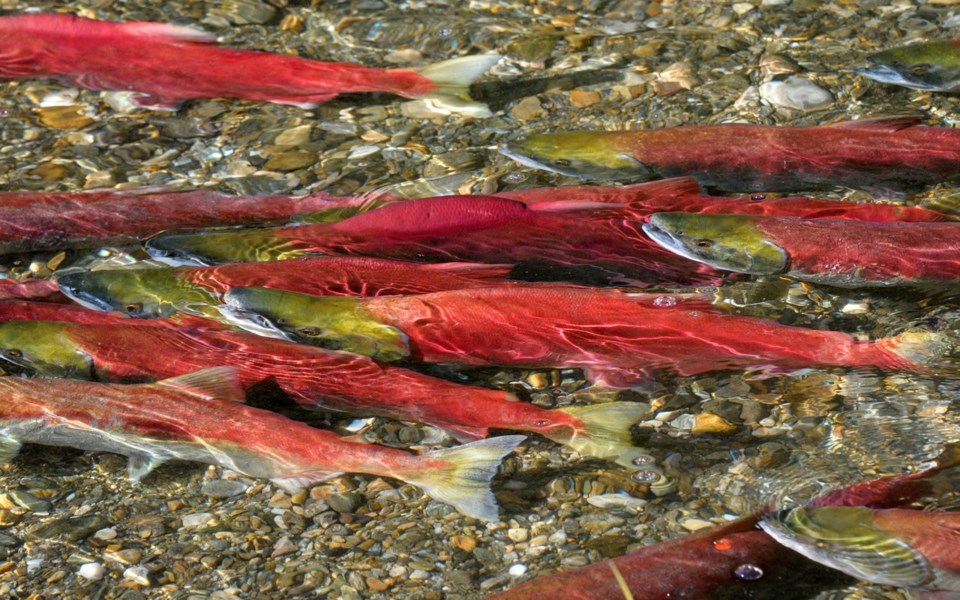With the lease set to expire next year on a Fisheries and Oceans Canada (DFO) office in Squamish, conservationists are warning of the potential consequences for dwindling fish populations if an office isn't maintained in the region.
Last month, it was confirmed to Pique that the owner of the building housing DFO's Squamish field office intends to sell the property.
A DFO spokesperson confirmed last week that senior management is "currently weighing options for the location of the employees that will continue to provide operations for the Squamish area."
In an interview last month, Pamela Goldsmith-Jones, Liberal MP for the Sea to Sky, reiterated the important role the Squamish field office plays in the enforcement and management of fisheries in the corridor.
"The connection to the community and all the not-for-profits that work with the DFO are there; they're in the creeks, they're in the ocean, and we need to maintain that strong connection because it's really how we provide the best service and the best efforts at conservation, restoration, and monitoring," she said.
"We are working to confirm that the office will have to change premises, but not staffing levels," Goldsmith-Jones added in a follow-up email this week.
An April 9 email obtained by Pique that was sent from a Squamish field office employee's personal account to several local fish advocates appears to indicate there is no intention to maintain the office within the community.
"We just found out that the local Fisheries Office is to close March 31, 2019; (and) at this time, there are no plans to re-situate us here," the email reads. "So, this will mean, no DFO (Conservation & Protection staff) from Squamish north; or Howe Sound."
Sea to Sky Fisheries Roundtable member Dave Brown said that the lack of enforcement that would result from the closure of the Squamish office could have a devastating effect on the Squamish River watershed's already diminishing fish populations.
"Without boots on the ground in our community, forget about it. It's over," he said, noting that the nearest DFO field office is two hours away in Steveston. "If we don't have an office and we don't have the equipment here, I hate to say it, because the majority of (fishers) here behave in a very responsible manner, but you get a few bad apples and our stocks are put in very serious jeopardy. And the stocks are already of extreme concern."
According to Brown, Birkenhead sockeye have dwindled to about 30,000 in recent counts—down from about 250,000 several years ago. Birkenhead Chinook, meanwhile, are now counted in the hundreds. "The genetics are going out the door, and once they're gone, there's no coming back," he added.
The Squamish Nation's Randy Lewis, VP of the Squamish River Watershed Society, said the need for DFO enforcement in the area ramps up when the Fraser River is closed for harvesting. "When that happens, there's an influx of not hundreds, but thousands of people coming up here hitting every watershed: the Mamquam, the Cheakamus and Upper Squamish (rivers)," he explained.
"We get very concerned with regards to appropriate enforcement measures to protect our Squamish watershed fishing areas."
If fisheries staff is relocated out of the region, the Sea to Sky would also be losing its DFO community liaison, an employee that administers the Salmonids in the Classroom program that has taught local students about the life cycle of fish going on 40 years. That program was saved from impending elimination last spring after outcry across the province. Locally, the protest was led by MP Goldsmith-Jones, who apologized on behalf of her party upon learning of the looming cuts.
That has Brown hopeful for a similar outcome with regards to the Squamish field office. "Let's give the government some credit," he said. "When the (fisheries) minister became highly aware of the potential cuts, he acted in a very responsible manner and restored the funding. So I'm hoping that the minister is going to act in the same manner on this one."




